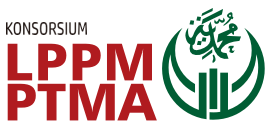
Aims and Scope
Aim
Urecol Journal. Part C: Health Sciences provides a forum for scholars to share their works and research about health sciences (miscellaneous). This journal aims to support evidence-based that can be enriched practice and policy in health sciences by publishing research, review, critical discussion, and case report of the highest standard.
Scope
Nursing specialties include ambulatory care, cardiac, critical care, education, emergency, flight, forensic, geriatrics, holistic, home health, hyperbaric, management, maternal–child, medical-surgical, military, neonatal, obstetrics, occupational health, oncology, orthopedics, pediatrics, perianesthesia, perioperative, psychiatric and mental health, private duty, and public health.
Midwifery
Midwifery disciplines include Pregnancy (First trimester, Second trimester, and Third trimester); Childbirth (Labor and delivery, Birthing positions); Postpartum period; and Care of the newborn.
Pharmacy
Pharmacy disciplines include Cardiovascular pharmacology, Dental pharmacology, Environmental pharmacology, Neuropharmacology, Pharmacoepidemiology, Pharmacogenetics, Pharmacogenomics, Pharmacognosy, Posology, Psychopharmacology, Systems pharmacology, Theoretical pharmacology, and Toxicology.
Medicine
Medicine disciplines include Anesthesiology, Angiology, Audiology, Bariatrics, Cardiology, Critical care medicine, Dentistry, Dermatology, Emergency medicine, Endocrinology, Family medicine, Gastroenterology, Geriatrics, Gynecology, Hematology, Hepatology, Infectious disease, Kinesiology, Laboratory medicine, Medical physics, Neurology, Nephrology, Oncology, Ophthalmology, Orthopedics, Otolaryngology, Pathology, Pediatrics, Public health and preventive medicine, Pulmonology, Psychiatry, Radiology, Rheumatology, Splanchnology, Surgery, Urology, and Veterinary medicine.
Public Health
Subdisciplines of public health include epidemiology, biostatistics, and health services. Other important specialized areas of inquiry include health economics, public policy, and occupational safety, as well as environmental, community, behavioral, sexual, and reproductive health.




